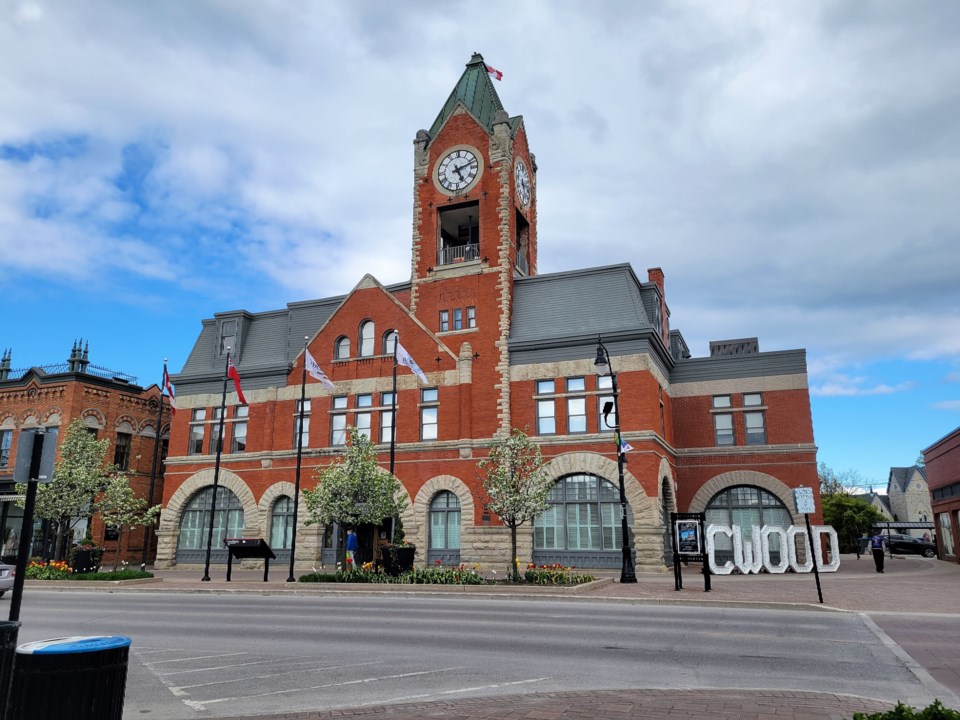Collingwood’s Mayor Yvonne Hamlin has put out a warning to un-licensed short-term rental operators: your days are numbered.
During the Nov. 6 regular council meeting, councillors voted unanimously in favour of starting a short-term accommodation licensing program in a phased approach that would see guest room rentals permitted in Collingwood as of February 2024.
“This has been a long time coming. A lot of municipalities have been struggling to put these regimes in, most of them not successfully,” said Hamlin. “In other municipalities, people still keep violating the law.”
“Ours seems to be the best so far. So let’s have a go at this. But to the 360 (operators) who are now violating our bylaws... when this comes forward I’m going to be sitting here demanding we do a blitz and shut down every one that doesn’t have a license.”
“I have had enough of this, and everyone sitting at this table has had enough,” she said.
Previously, as a rule, most short-term accommodations (STA) outside of hotels and motels were prohibited in Collingwood by the town's zoning bylaw. Bed and breakfast units are allowed for short-term rental only if the owner or proprietor also lives in the same building where the units are being rented.
Despite this rule, according to a recent staff report, third-party data from Granicus indicates approximately 360 short-term rentals were operating across Collingwood.
Under the new system approved by council this week, short-term rentals will only be permitted in someone’s principal residence, or in an accessory unit where the owner lives in the principal residence.
The town plans to launch the program in February 2024 with guest room rental operations to start as phase one of the program.
Phase two would roll out to all short-term accommodations, and would be dependent on making changes to the town’s planning policies. If all goes well, phase two could roll out in the third quarter of 2024.
Estimated costs for the program are expected to be between $206,748 and $245,063 in the first year for phase one, and between $161,753 and $229,411 in subsequent years depending on when phase two rolls out.
The licensing fees to be paid by operators are intended to fully fund the program and ongoing costs, however, the town will leverage some funds from the annual parking surplus for up to two years to make sure the program stays revenue-neutral.
Annual licensing fees will be $1,250 for a guest room rental, $2,250 for a principal resident short-term accommodation and $2,500 for an accessory dwelling unit.
Enforcement will be reactive based on public complaints. Fines would range from between $500 to $2,000, and demerit points would be issued when non-compliance orders are laid. Fifteen demerit points would result in the revoking of a licence for two years.
Under the new rules, once a licence is issued, the licensee will be responsible for maintaining a guest register which indicates the guests’ names, addresses, telephone numbers, number of guests, length of stay, and confirmation that the smoke and carbon monoxide alarms have been checked and are in working condition after guests leave. The licensee is also responsible for monitoring guests' compliance with existing town bylaws.
Licensees will be required to include their license number on any advertisements for their rental.
A maximum of 200 licences will be issued by the town annually on a first come, first served basis with a wait list, should one be deemed necessary.
Coun. Deb Doherty put forward an amendment during Monday’s meeting to give operators eligible in the first phase a break on licensing fees for the first year, down to $350, to just cover the town’s costs.
Coun. Rob Ring spoke against the idea, noting guest-room rental operators already pay half of what other operators will pay through the program.
“I can’t see the rationale on giving them a break. Frankly, they’re getting a break anyway,” said Ring.
Deputy Mayor Tim Fryer said he felt many of the legally operating bed and breakfasts should be given some kind of acknowledgement that they’ve been following the rules.
“If we’re not looking at giving exemptions to bed and breakfasts that have been operating commercially, then why are we also not charging short-term accommodation licensing fees to hotels or motels?” asked Coun. Brandon Houston.
Hamlin was also sympathetic to the existing owners of commercial bed and breakfasts who have been operating within the rules.
“Do we let those small businesses be phased in at no cost? To me, that seems fair,” said Hamlin.
Councillors voted 5-4 to reduce the fees for existing bed and breakfast owners to $350 for the first year of the program. Council voted unanimously in favour approving the new licensing program for short-term accommodations.




